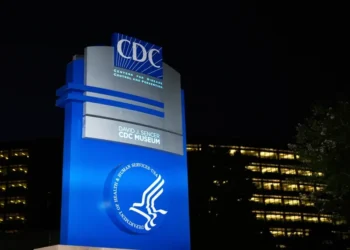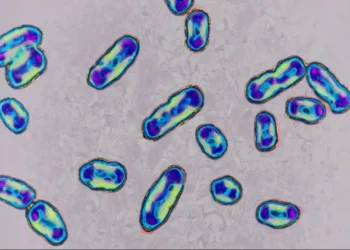Infectious Diseases
Infectious diseases are illnesses caused by harmful microorganisms such as bacteria, viruses, fungi, and parasites. These diseases can spread from one person to another, through direct contact, airborne transmission, contaminated water or food, and insect vectors. Some common examples include influenza, tuberculosis, HIV/AIDS, and malaria. The impact of infectious diseases can range from mild illnesses to life-threatening conditions, and they continue to pose a significant global health challenge. Advances in medical research, vaccinations, and treatments have helped control many infectious diseases, but emerging new strains and antibiotic resistance are ongoing concerns. Preventative measures, hygiene practices, and global cooperation are essential to reduce the burden of these diseases.
First Human Death from Rare H5N5 Bird Flu Reported in Washington
Washington Resident Believed to Be First Human Fatality from Rare H5N5 Bird Flu A resident of Grays Harbor County, Washington,...
U.S. Sees Sharp Rise in Drug-Resistant “Nightmare Bacteria” Cases
Drug-Resistant ‘Nightmare Bacteria’ Cases Surge Across the United States Published: September 24, 2025, 08:00 EDT Drug-resistant bacterial infections labeled as...
Chagas Disease Now Considered Endemic in the U.S., Experts Warn of Rising Health Threat
Chagas Disease Declared Endemic in the U.S. as Experts Call for Greater Awareness Published Time: 09-17-2025, 14:30 EDT Chagas disease,...
How to Protect Yourself from Vibrio Vulnificus Infections in Coastal Waters
How to Protect Yourself from Vibrio Vulnificus Infections in Coastal Waters Published Time: 08-20-2025, 15:00 Health officials across the United...
Can You Catch Diseases From Toilet Seats? Experts Explain the Risks
Can You Catch Illnesses From Public Toilet Seats? What Science Says Published Time: 08-19-2025, 16:20 Public toilets often provoke an...
Potential Rabies Exposure at Grand Teton National Park Cabins Prompts Health Alerts
Rabies Risk at Grand Teton Cabins Triggers Nationwide Health Notifications Published Time: 08-16-2025, 18:00 Health officials are warning hundreds of...
Understanding Summer Colds and the Emerging COVID-19 Stratus Variant
Summer Sniffles and the Stratus COVID-19 Variant: What You Need to Know Published Time: 08-15-2025, 14:00 Summer is often associated...
Hand, Foot and Mouth Disease Sees Rise Across U.S., Health Officials Warn
Surge in Hand, Foot and Mouth Disease Cases Raises Public Health Concerns Across the U.S. Writing Time: August 5, 2025,...
How COVID Origin Theories Are Undermining Future Pandemic Preparedness
Conspiracy theories about COVID’s origins are endangering future pandemic response Written: August 1, 2025 – 14:00 ET Conspiracy theories surrounding...
Arizona Reports First Pneumonic Plague Death in Nearly 20 Years: What You Need to Know
Arizona Reports Rare Death from Pneumonic Plague — Should You Be Worried? An Arizona resident recently died from pneumonic plague...
TRENDING
RECOMMENDED
CATEGORIES
Journos News delivers globally neutral, fact-based journalism that meets international media standards — clear, credible, and made for a connected world.
Join thousands of readers receiving the latest updates, tips, and exclusive insights straight to their inbox. Never miss an important story again.
© JournosNews.com – Trusted source for breaking news, trending stories, and in-depth reports.
All rights reserved.




















